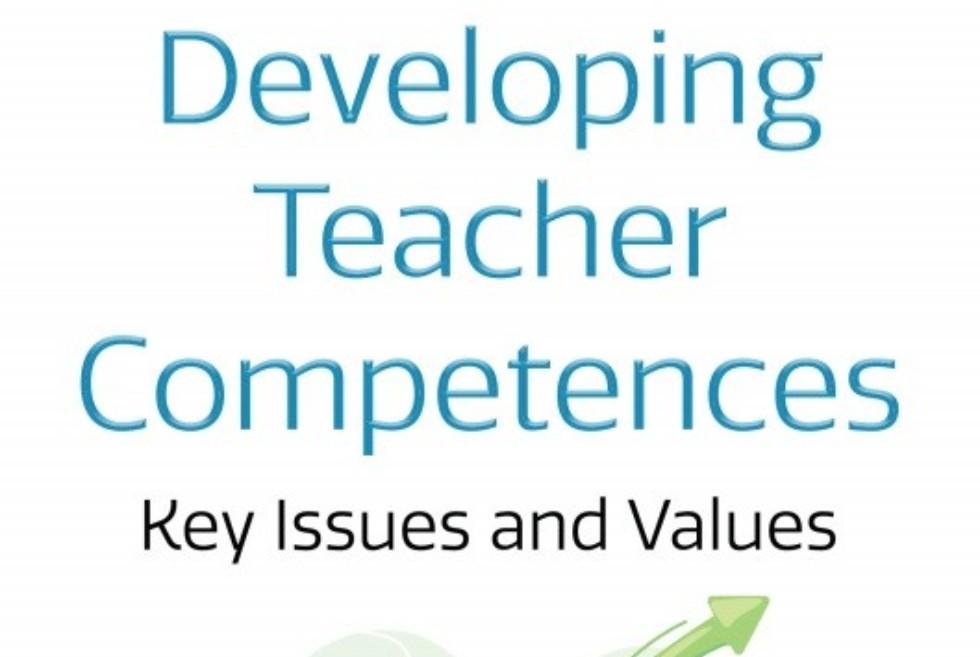The well-known academic publishing house Nova Science Publishers (USA) has published an international monograph edited by KFU scientists

The well-known academic publishing house Nova Science Publishers (Hauppauge, New York, USA) published the international monograph Developing Teacher Competences: key issues and values in the series “Education in a competitive world”, edited by the rector of Kazan University Ilshat Gafurov, director of the Institute of Psychology and Education Aydar Kalimullin, visiting professor, deputy editor of the journal “Education and Self-Development” Nick Rashbi, head of the Department of Pedagogy, IPO Roza Valeeva. The authors of 16 chapters of the monograph were scientists from Kazan Federal University, Sofia University named after St. Kliment Ohridskiy, Institute of Education Development Strategy of the Russian Academy of Education, Lyceums of Kazan Federal University, etc.
The monograph, which scientists have been working on for almost a year, is devoted to the issues of professional development of teachers.
The editors considered it relevant to answer the question “How exactly should the professional and pedagogical activity of a teacher change in order to provide a new quality of education that meets the“ challenges of the time? “.
The choice of the theme of the value of teachers and their professionalism by the editors of the monograph is not accidental. This is part of the new teacher training programs that have been created at Kazan University over the past few years.
The first chapter is a study by Timirkhan Alishev, Johann Dammerer and Oksana Polyakova about changing the thoughts of future teachers. The researchers presented the results of in-depth interviews related to the beliefs of students at the beginning of their studies and changes in these beliefs due to various stressful situations. The survey involved 28 university graduates (KFU and the Austrian Pedagogical University).
The authors of the second chapter shared information about the results of the study of the personal characteristics of the creative competence of teachers. In this article, the authors concluded that future teachers who engage in creative educational activities while at university will use educational opportunities in the future with unusual, non-standard teaching ideas.
The study by Aida Minullina and Ksenia Pyrkova is devoted to the relationship between emotional and intellectual characteristics and indicators of tolerance to uncertainty in future teachers.
Vyara Gyurova from the Sofia University of St. Clement in the 4th chapter states about the peculiarities of the reaction of male and female teachers to stressful situations.
In the fifth chapter, co-authors Elena Asafova and Oksana Vashetina say that the diagnosis of the real readiness of undergraduates for professional and pedagogical self-development gives them the opportunity to model, design and plan the educational process as an individual preparation for future pedagogical activity.
Gulnara Valiullina and Natalya Boryakova in the sixth chapter presented a study of factors that complicate the effective pedagogical correction of disabilities in preschool children with mental retardation. The authors presented professional development programs that provide the formation of the necessary scientific and methodological knowledge for effective professional activity in inclusive groups.
Ilnar Yarullin, Olga Razumova, Ramis Nasibullov are the authors of the seventh chapter of this book. Their little evidence-based research recognizes the need to organize targeted, systematic work to build the competencies of future mathematics teachers.
In Chapter 8, the authors highlight the benefits of using practice-oriented technologies. They determined that simulation technology provides students with behavioral emotional training to help them develop the personality and noxology skills necessary for the job.
In the ninth chapter, Tatiana Baklashova, Elena Skobeltsyna and Elena Galishnikova discuss the modification of practical training programs in the master’s degree in pedagogical profile.
Inna Golovanova, Nadezhda Telegina, Olga Donetskaya analyzed in the tenth chapter the ability of future teachers to design and deliver classes.
The author of the next chapter is Regina Sakhieva. Theoretical analysis and expert polls allowed the author to identify the issues of developing and using a portfolio in the educational practice of training teachers for master’s degrees. The chapter presents the author’s structure of the master’s portfolio in education.
The focus of the research presented by Reseda Khusainova is on the psychological well-being of novice teachers.
Chapter thirteen discusses the risks of early burnout in young teachers. Lera Kamalova and Galina Zhirkova found that burnout risk factors for young teachers include external and internal, personal, status-role, professional and organizational factors. They recommend psychological and pedagogical support to aspiring teachers; increasing the importance of the teaching profession; uniting in professional communities and mentoring young teachers.
The study of the components of the professional content of the educational activities of novice teachers became the main topic of Chapter 14.
Chapters 15 and 16 were written by Professor Anvar Khuziakhmetov. It presents the main forms of support for novice teachers, contributing to their further professional development, their self-realization and professional ambition, and talks about the role of the teacher in the process of adaptation of the student to the changing school environment.
Thus, the monograph is an overview of the current state of research on the professional development of teachers.
Researchers in the monograph share their views and research results on the modernization and development of the content of teacher education. They discuss issues related to the values and priorities in the field of modern teacher education, modernization processes and the content of teacher education, including the requirements of a competency-based approach, based on the experience of different countries and different universities.
The scientific publication was published in English and can be useful for researchers of the development of pedagogical theory and practice, for everyone who is interested in pedagogical problems, as well as for teachers, students, undergraduates, postgraduates and doctoral students of pedagogical educational institutions.